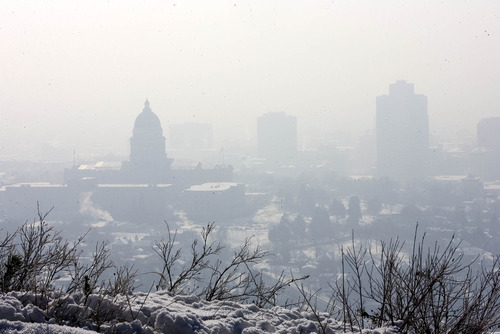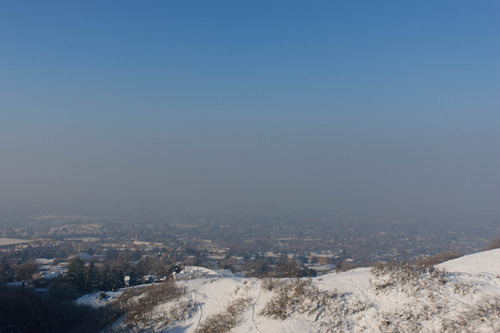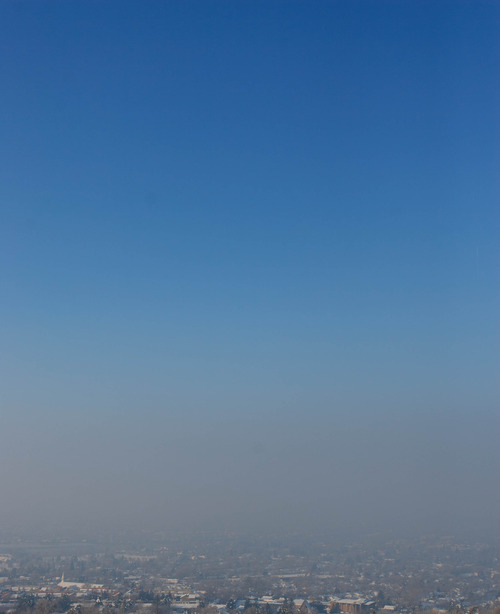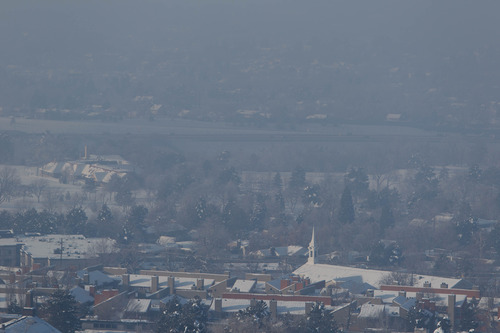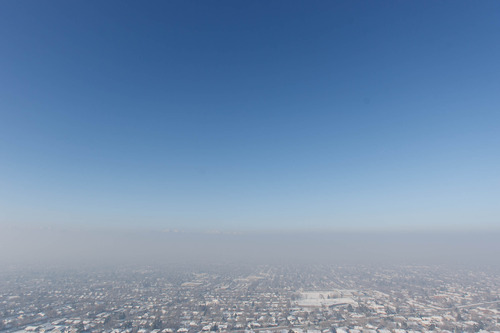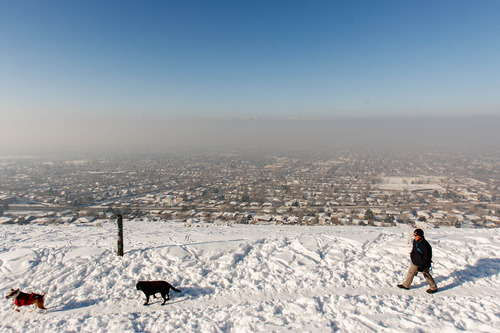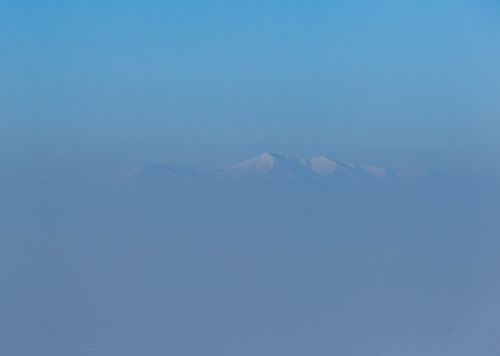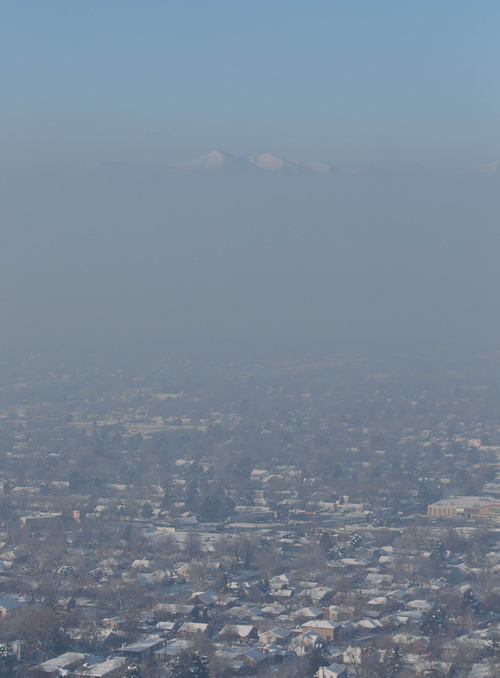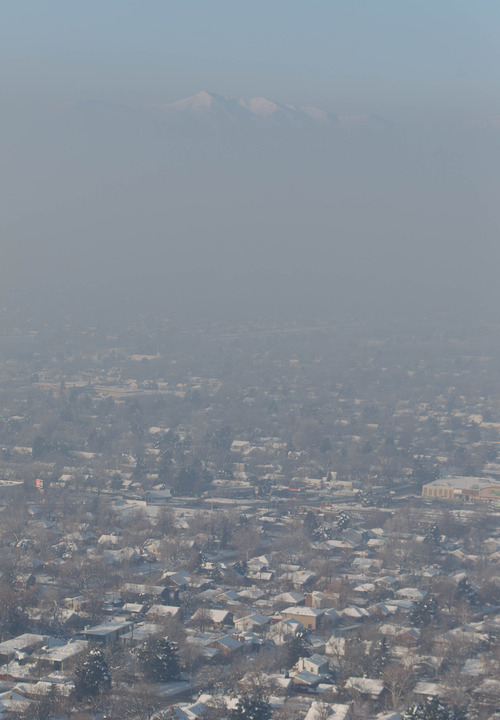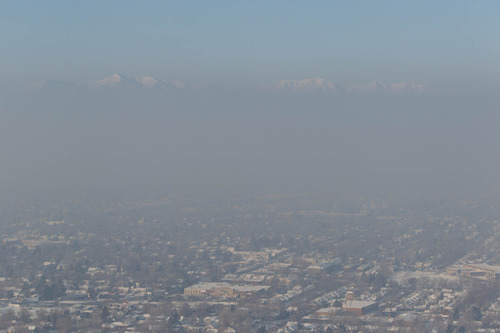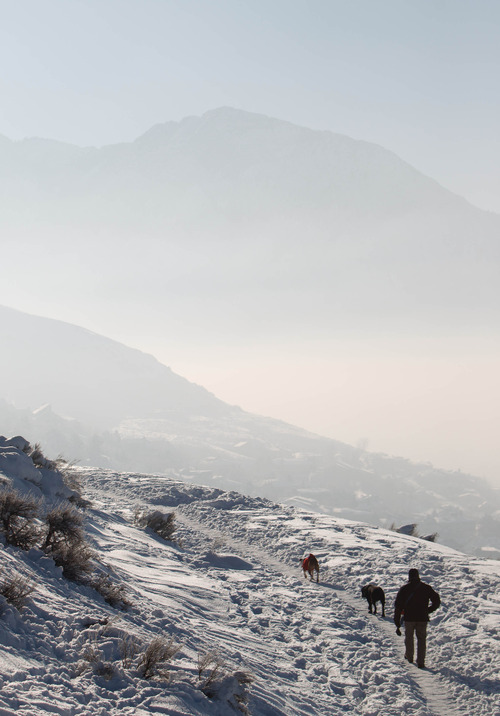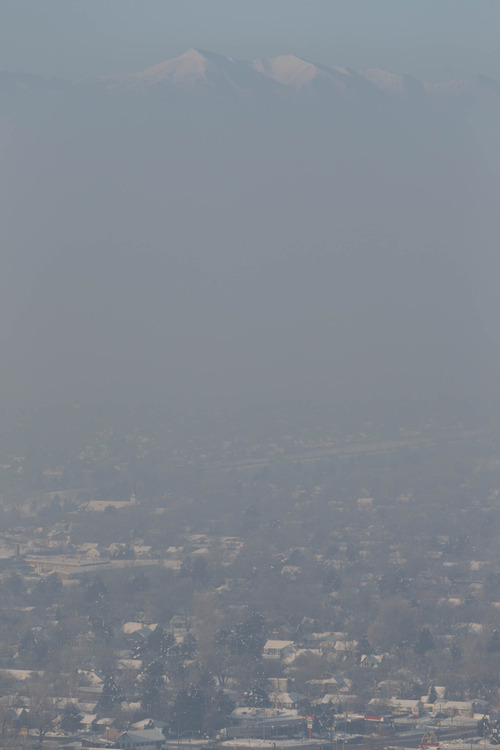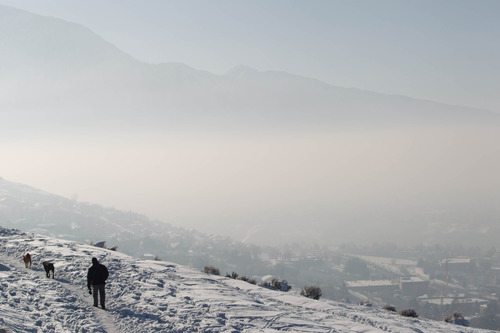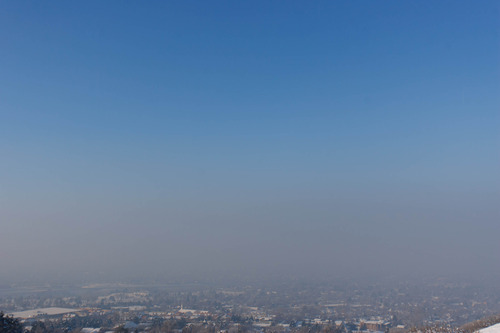This is an archived article that was published on sltrib.com in 2013, and information in the article may be outdated. It is provided only for personal research purposes and may not be reprinted.
Dozens of doctors are asking Utah leaders to declare a public health emergency because of Utah's winter smog.
They want leaders to take immediate, temporary steps, including reducing freeway speed limits and making mass transit free, so the state is no longer the ugly, red bull's-eye on the nation's pollution map.
More than 60 doctors have signed onto a letter drafted by the Utah Physicians for a Healthy Environment, which will be delivered Wednesday to Gov. Gary Herbert's Capitol office.
"We are in a public health emergency already, and it is likely to get worse," said Brian Moench, co-founder of the group. "We will call on the governor and mayors of the Wasatch Front cities to take decisive, immediate action in response to the situation."
Deputy Chief of Staff Ally Isom said Herbert "wholeheartedly agrees everyone has a responsibility to improve the air," from individuals to industry and government.
"The State of Utah and its agencies will absolutely continue to enforce all air quality regulations to their fullest extent," she said in an emailed statement. "While the current air quality does not meet legal criteria to declare an official public health emergency, we should all be actively doing our part to minimize emissions."
In addition, the Utah Health Department noted that current air pollution levels have not triggered the formal and never-used process for declaring a public health emergency.
"It's in the governor's power to declare a public health emergency," said health department spokeswoman Cyndi Bemis. "And the health department has no evidence of a public health threat from the air that would prompt or require a declaration of a health emergency."
Northern Utah valleys have been choked in winter smog almost every day since Christmas. But soon after a storm covered the valley floors with snow two weekends ago, pollution ramped up to levels considered "unhealthy" even for the general population.
Not only can winter smog irritate noses and cause scratchy throats, it can have serious, even deadly consequences for some. The pollution gets trapped in valley bowls during high-pressure events and even manufactures itself by mixing with other airborne pollutants.
The concern is PM 2.5, microscopic soot that buries deep in the lungs. It reaches worrisome levels when concentrations rise to 35 micrograms of pollution per cubic meter of air under U.S. Environmental Protection Agency standards.
Utah's air quality has actually been improving in the 40 years since Congress passed the Clean Air Act. Older Utahns can tell stories about the soot that their windshield wipers would push away during inversions of that era.
But new, tougher standards by the EPA, rapid population growth and growing awareness about pollution's health and economic impacts have put the issue on the top of the public agenda in recent years.
The problem is also embarrassing this week because the Outdoor Retailer Winter Market is drawing thousands to Salt Lake City and because the world's movie industry is visiting for the 2013 Sundance Film Festival.
But Moench's group insists the issue is far more serious than a smoggy bruise to Utah's reputation. The advocacy group has likened the health impacts of breathing the foul air to forcing the young, the old, the sick and everyone else to smoke cigarettes — an assertion state environmental regulators dispute.
The doctors' group also notes in its letter the adverse effects can "have lifelong and irreversible impacts on the health of babies in utero."
"Furthermore," the letter says, "we know from thousands of medical studies that people are dying in our community right now because of the air pollution and its role in triggering strokes, heart attacks, congestive heart failure, fatal arrhythmias, lung diseases and infections and infant mortality."
One of the physicians' recommended actions is ordering the largest industrial polluters, including Kennecott and the oil refineries, to cut pollution in half.
But Kennecott spokesman Kyle Bennett said his company has taken big steps to cut pollution, including shutting down its power plant in winter, building its smelter stack above the inversion ceiling and implementing a companywide idling reduction program.
"Our contribution to the inversion is really quite small," he said, citing an estimate of 3.8 percent of the valley pollution emissions on a typical winter day.
fahys@sltrib.com Twitter: @judyfutah —
Utah Physicians for a Healthy Environment
The doctors who signed the Utah Physicians for a Healthy Environment letter advise the public to protect its own health. That includes avoiding any exercise outdoors and consulting physicians about adopting an anti-inflammatory regimen, which might include fish oil supplements and antioxidants, such as vitamin C and chocolate.
They also are asking state leaders through March 15 to address the impacts of winter smog on public health with a strategy that includes:
Reducing freeway speed limits to 55 mph.
Making mass transit free.
Ordering the largest industrial polluters, including Kennecott and the oil refineries, to cut pollution in half.
Shutting down businesses that burn waste.
Prohibiting wood burning.
Launching public service announcements.
Asking businesses to accommodate telecommuting and reduce employee driving when possible.


